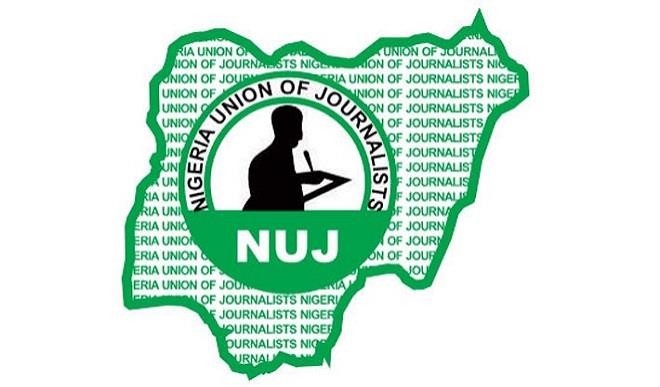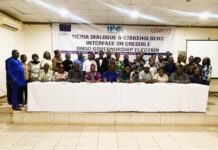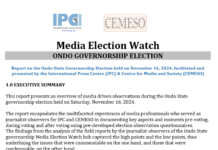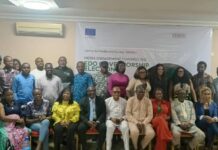Now that we have celebrated or whined the victory of Muhammadu Buhari over opposition candidate Atiku Abubakar, a victory some people still refer to as Pyrrhic triumph, it is perhaps time we examined how the 2019 elections were covered by journalists, including the evolving relationship between the government, the people, and the press.
One persistent question that has dominated the public sphere is whether Nigerian journalists framed the 2019 elections in the same way. Or did journalists adopt different frames to report the elections? An understanding of how the media covered the elections is important because the media can endanger or promote racial harmony in society. The media can also engender public support or hatred for the government. The role of the media is critical because the media serve as the primary channel through which citizens receive news and information about events in their environment and overseas.
There is no question that journalists took sides when they reported the 2019 elections. Some journalists supported the ruling party and the Federal Government. The nature of their coverage of the elections showed clear advocacy for the government. They wanted the government to be re-elected. They wanted the party to dominate the National Assembly. While those journalists sympathetic to the Federal Government reported that the elections were generally free, fair, peaceful, and credible, other journalists disagreed forcefully.
In a highly contested environment in which political parties deployed every strategy to win elections by fair or disreputable means, social media became a vehicle for dissemination of fake and genuine news. Freely circulated on social media were doctored photos and video images that supported the narrative of every political party.
Also disseminated with equal measure of passion were genuine photos and videos that served as unimpeachable evidence of the massive scale of election results manipulation, rigging, total violations of the election rules, the high level of mayhem that marred voting in some polling units, including indiscriminate and targeted shooting of voters. The videos also captured the mathematical abracadabra that took place at the collation centres where legitimate ballot papers were replaced audaciously with ballot papers illegally thumb-printed by criminal political party agents superintended by crooked officials of the Independent National Electoral Commission (INEC), and dubious security agents who participated in and consecrated the electoral heist.
Some scholars believe journalists have major reasons for constructing news stories that support their position or political leanings during an election. The tendency that journalists have to show strong political leanings when reporting elections is based on the understanding that it is all right to support or collaborate with members of their own in-group or a government that is led by a member of their own political party or ethnic group.
Although a range of factors influence news coverage, social identity theory suggests that journalists tend to act to promote their personal, ethnic, regional, or religious interests when they are confronted with the challenges of reporting elections in which the stakes are so high. The 2019 elections fitted the bill and journalists discarded their ethical obligations that required them to report news that is accurate, balanced, truthful, objective, fair, or impartial.
The partisan nature of journalism practice dates as far back as the 19 th Century. That was when journalists openly expressed their support for one cause or one political ideology over another. Bias in news coverage is reflected in various ways, such as through news selection and reporting decisions, as well as through the space or time allocated to news. In news reporting, journalists make judgements about what is likely to be of interest to their audiences. The judgements may be based more on anecdotal evidence than on scientifically verifiable and unprejudiced data. By selecting certain events and rejecting others, and by explaining the events in a narrow-minded way, journalists influence the way the public perceives reality.
Some scholars have argued that socio-cultural values, contextual factors, the conventions of news production, and journalists’ beliefs often affect how journalists report news that might appear to be objective but in practice is largely biased.
One of the canons of journalism practice enjoins journalists to be truthful, fair, accurate, and balanced in their reporting. However, many people have wondered whether journalists were able to uphold their professional values in reporting the 2019 elections. While some people argue that journalists can contribute to peaceful and harmonious existence of citizens in trying times, other scholars and journalists contend that media reports can indeed exacerbate national outrage, inter-ethnic and inter-religious conflict, tension, uneasiness, and mutual suspicion.
The way journalists report on national issues such as elections could have significant impact on the perceptions and images citizens have about themselves, their country, the election umpire such as the INEC, and the level of transparency or ambiguity of the election process. In essence, the nature of media coverage can affect national cohesion or breakup.
Regardless of occasional awkwardness in the relationship between ethnic groups, a relationship that often results in bloodshed and mindless killings, government officials argue it is in the interest of all ethnic groups to maintain good relationships, not only in terms of promoting cultural and economic progress but also in terms of strengthening security and the bond of nationalism.
Virtually all ethnic groups share a common vision for the country to be restructured to give everyone that sense of belonging, equal access to national resources, equal political and economic opportunities, and the perception that the country has an obligation to provide for the welfare, safety, and wellbeing of all citizens.
Buhari might have been re-elected but major national and international challenges remain. If he wants to be remembered in a positive way during his second term rather than the uninspiring performance in his first term, he must surround himself with superior advisers and listen to their counsel. Based on experiences in the past four years, I am not persuaded that Buhari would be keen to change his kitchen cabinet and team of advisers.
Whatever he does, Buhari should aim to provide for the basic needs of people across the country rather than his ongoing commitment to look after the needs of people in his region of origin. He should set up viable projects designed to make a difference in the lives of citizens. He must tackle key national challenges such as endemic corruption and the breakdown of law and order. He needs not be informed that political power is ephemeral. His current position of influence won’t last forever. As a proverb says, nothing lasts forever. And that applies to his government.
Whether Buhari likes it or not, the Constitution, his health and age will not grant him the legal ground to dream of a third term.
















